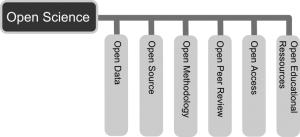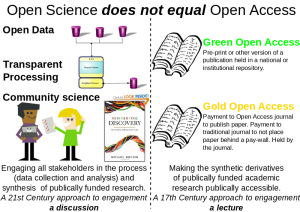Four of the UK’s leading research organisations: HEFCE, RCUK, Wellcome and Universities UK, have launched a concordat that proposes a series of clear and practical principles for working with research data.
“This concordat will help to ensure that the research data gathered and generated by members of the UK research community is made openly available for use by others, wherever possible, in a manner consistent with relevant legal, ethical, disciplinary and regulatory frameworks and norms, and with due regard to the costs involved”. (RCUK)
“The Concordat for the first time, proposes a series of clear and practical principles for working with research data that cover the many roles needed to support the research process. It is not a rulebook, but a set of expectations of best practice developed by the research community itself.” (Jo Johnson, Minister of State for Universities and Science)
Open research data is the next step in achieving the UK’s open science ambitions and will help improve co-operation and strengthen the UK’s position as a global science leader. (RCUK)
The Concordat on Open Research Data is open for other organisations and groups to sign up to over time. Interested parties can contact Alexandra Saxon: Alexandra.saxon@rcuk.ac.uk
Responses from the four initial signatories:
HEFCE
“Open research data has the potential to deliver substantial benefits to research and to wider society. Open data will reveal new research avenues, and deliver innovative new technologies and services that will improve our lives. Achieving open data is not easy; there are substantial challenges ahead which will require the commitment of everyone involved in research. This concordat is an important step towards securing this commitment. I would now encourage all those involved in research to sign up to the principles and engage with this agenda.”
David Sweeney, Director of Research, Education and Knowledge Exchange, HEFCE
Research Councils UK
“RCUK welcomes the Open Data Concordat and the focus that the core principles bring to ensuring that the data resulting from the research that we fund is as open as possible. By ensuring good practice around the open use and reuse of data, where appropriate, we can ensure that research brings optimum benefits to the long term prosperity and wellbeing of the UK and to the world.”
Prof. Duncan Wingham, Chief Executive of NERC and RCUK Open Data Champion
Universities UK
“Open research data has the potential to deliver significant benefits for society by enhancing the impact of our world-class research base. Universities UK welcomes this concordat, which sets out the aspirations of the research community while recognising the costs and challenges that must be addressed if we are to realise these benefits. By supporting the concordat, universities and other research organisations can help ensure that the UK remains at the cutting edge of science and research.”
Nicola Dandridge, Chief Executive of Universities UK,
Wellcome Trust
“The Concordat sets out core principles to guide the research community in ensuring that research data can be accessed and used in ways that will accelerate discovery and maximise benefits to society. Importantly, it recognises that not all research data can be shared openly, and that there is a need for all researchers to plan how they will manage and share data as an integral part of planning their research”
Nicola Perrin, Head of Policy at Wellcome Trust
 The UK Research Office (UKRO) is the European office of the UK Research Councils. It delivers a subscription-based advisory service for research organisations (in the main UK HEIs) and provides National Contact Point services on behalf of the UK Government. UKRO’s mission is to maximise UK engagement in EU-funded research, innovation and higher education activities. One way UKRO supports this mission is through the annual conference.
The UK Research Office (UKRO) is the European office of the UK Research Councils. It delivers a subscription-based advisory service for research organisations (in the main UK HEIs) and provides National Contact Point services on behalf of the UK Government. UKRO’s mission is to maximise UK engagement in EU-funded research, innovation and higher education activities. One way UKRO supports this mission is through the annual conference.
















 Dr. Ashraf cited on ‘Modest Fashion’ in The Guardian
Dr. Ashraf cited on ‘Modest Fashion’ in The Guardian NIHR-funded research launches website
NIHR-funded research launches website Academics write for newspaper in Nepal
Academics write for newspaper in Nepal New paper published on disability in women & girls
New paper published on disability in women & girls Global Consortium for Public Health Research 2025
Global Consortium for Public Health Research 2025 MSCA Postdoctoral Fellowships 2025 Call
MSCA Postdoctoral Fellowships 2025 Call ERC Advanced Grant 2025 Webinar
ERC Advanced Grant 2025 Webinar Horizon Europe Work Programme 2025 Published
Horizon Europe Work Programme 2025 Published Horizon Europe 2025 Work Programme pre-Published
Horizon Europe 2025 Work Programme pre-Published Update on UKRO services
Update on UKRO services European research project exploring use of ‘virtual twins’ to better manage metabolic associated fatty liver disease
European research project exploring use of ‘virtual twins’ to better manage metabolic associated fatty liver disease